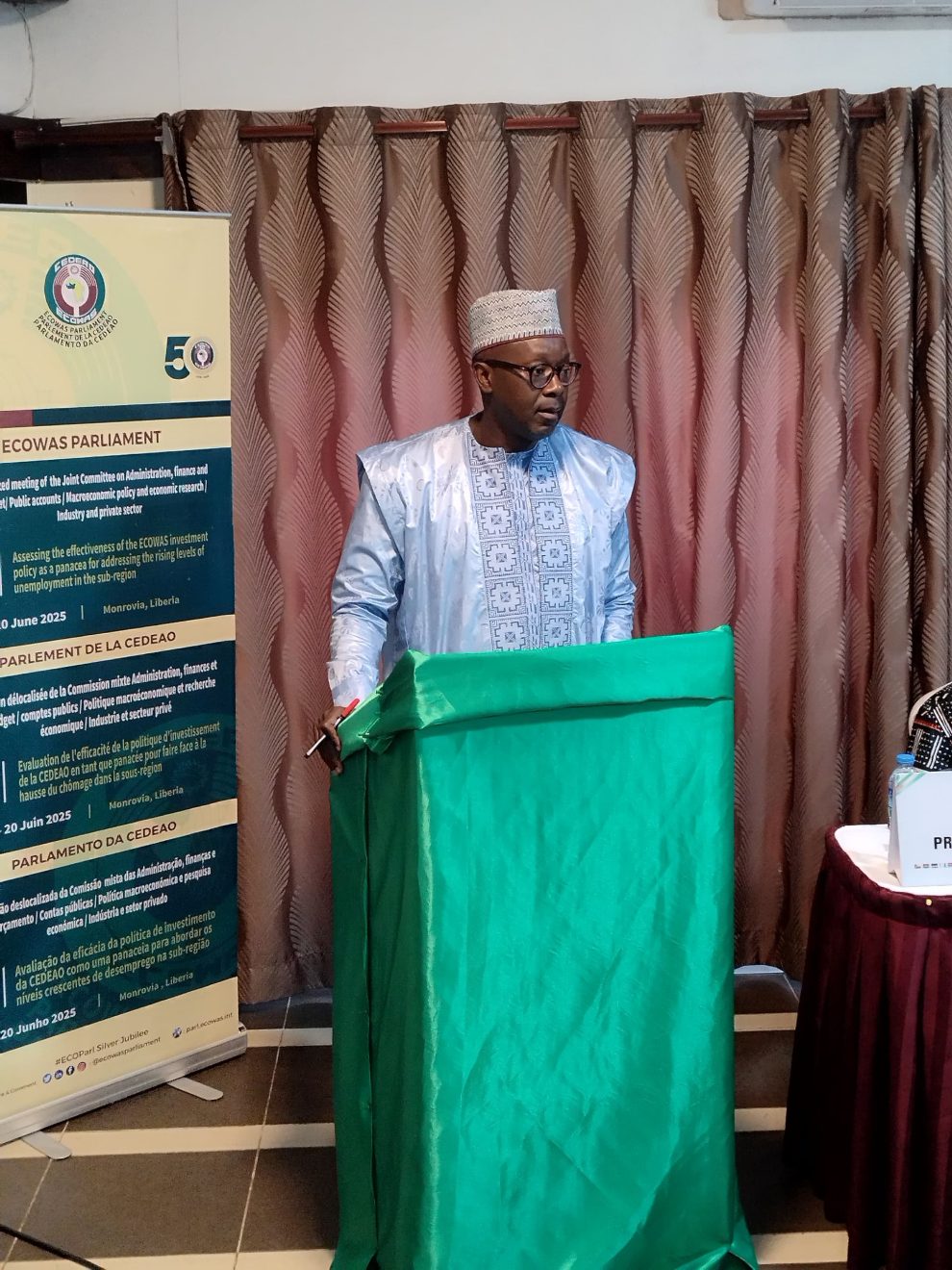Segun Ojumu
Monrovia, Liberia – West African parliamentarians have entered their second day of critical discussions in Monrovia, Liberia, as the ECOWAS Parliament’s Joint Committee intensely reviews the region’s investment policy amidst a deepening unemployment crisis. At the heart of these deliberations, Liberian Senator Amara Konneh delivered a stark assessment, asserting that existing economic strategies have largely failed to translate growth into meaningful job opportunities for the sub-region’s rapidly expanding youth population.
The gravity of West Africa’s job market is underscored by grim statistics: the region’s unemployment rate stands at 24.95%, significantly higher than the global average of 5.8%. Youth unemployment is among the highest worldwide, a dire situation that compels many to resort to illegal migration due to a pervasive lack of local prospects. This paradox persists despite the vast ECOWAS market, encompassing over 400 million people and boasting abundant natural resources. Senator Konneh’s presentation detailed why Foreign Direct Investment (FDI) inflows, though seeing modest improvements in 2021, have largely stagnated and not consistently delivered on their promise of sustainable development and job creation. Key impediments include fragmented regulatory frameworks, the challenges posed by multiple currencies across member states, and insufficient infrastructure and skills. With a projected 61.4% of the population under 24 years old by 2024, the region faces a demographic dividend that demands significant, targeted investment in education and job creation. Furthermore, the dominance of the informal sector, characterised by high underemployment and low wages, absorbs a majority of the workforce due to limited formal opportunities and inadequate training, exacerbating the crisis.
The ECOWAS Investment Policy (EIP) was initially designed to attract investment, stimulate growth, and foster job creation by improving infrastructure, streamlining administrative processes, reducing regulatory barriers, and promoting skills development. However, its implementation has encountered considerable hurdles. Sector-specific challenges include agriculture, which employs 60% of the West African population but contributes less than 35% to GDP due to low productivity and limited mechanisation. Manufacturing accounts for less than 10% of employment, reflecting a slow industrial transition. Even the growing services sector, contributing significantly to GDP, suffers from pervasive skills mismatches. Crucially, Small and Medium Enterprises (SMEs), representing over 80% of businesses and recognised as vital engines of job creation, continue to struggle with scaling due to limited access to finance and burdensome regulatory environments. The presentation identified key barriers to the EIP’s effective implementation, including ongoing regulatory fragmentation, infrastructure deficits, limited investor confidence, and weak investment facilitation mechanisms.
In response to these pervasive challenges, Senator Konneh outlined a series of proposed strategies to optimise the EIP. These include accelerating the harmonisation of investment laws and ensuring greater coherence between national legislation and broader regional treaties. The plan calls for enhancing Public-Private Partnerships (PPPs) to drive essential infrastructure and industrial growth, while prioritising investment in high-impact sectors such as agriculture, energy, manufacturing, and the digital economy. A strong emphasis is placed on strengthening human capital development through technical and vocational education (VOTECH) to align workforce skills with market demands. Furthermore, the proposals advocate for establishing transparent mechanisms for investment dispute resolution, strengthening governance frameworks for policy consistency, and improving the monitoring and evaluation of tax incentives to ensure they yield desired benefits. The ECOWAS Commission is urged to play a key advocacy role in these reforms, and the Parliament has called for annual ECOWAS-sponsored investment conferences and trade shows to bridge the gap between investors and policymakers. Ultimately, the objective is to fully integrate the ECOWAS Common Investment Code into national policies by 2030, mobilise resources, and significantly expand investments to create sustainable employment opportunities across the region.
Analysis: The comprehensive evaluation presented by Senator Konneh signifies a critical juncture for the regional bloc. It signals a clear recognition that prolonged periods of economic expansion have not adequately alleviated joblessness, particularly among young people, prompting a shift from merely crafting policies to demanding measurable results.
The thorough dissection of obstacles, ranging from disjointed regulations to an unaligned investment focus, reveals a more profound grasp of the underlying systemic issues. For the ECOWAS Investment Policy to transition from theoretical goals to practical achievements, it will require not only the alignment of legal frameworks but also a steadfast commitment from member states to enact unified, transparent, and enforceable guidelines.
The strategic focus on small and medium-sized enterprises, vocational skills development, and precise sectoral investments indicates an intention to cultivate ‘high-quality’ employment, moving beyond simply increasing job numbers.
The successful execution of these ambitious plans will be instrumental not only for the economic prosperity of millions throughout West Africa but also for ensuring regional stability, potentially mitigating irregular migration flows and bolstering trust in ECOWAS’s capacity to advance its integration objectives amidst prevailing regional complexities.





Add Comment